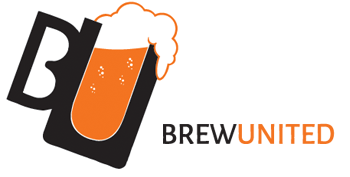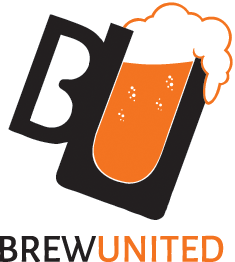How to use Bru'n Water - Video Tutorials for Water Chemistry
Water chemistry. Those two words can invoke feelings of unease and uncertainty. Perhaps you didn't enjoy (or understand) a high school or college chemistry class, and since that point, any exposure to the term "chemistry" leaves you with hives.
Maybe the idea itself of tweaking your water chemistry is interesting to you, but you've discovered lots of complicated discussions on the subject, and you really don't know where to start.
That latter situation was me at the end of last year. I had gotten pretty compfortable with all grain brewing, I had repeatable success, but I was starting to understand that the next level entailed me getting a good handle on my water. What I didn't understand was how on earth I was going to do that.
Enter my pal Greg (aka vinpaysdoc), a fellow redditor who had this water business figured out, and was kind enough to teach me. Greg introduced me to a life saving tool - Bru'n Water, by Martin Brungard. Bru'n Water is set up as an Excel spreadsheet, and is free to download and use (though if you *do* use it, it would be cool of you to drop a couple of bucks to the author).
Sadly, I had convinced myself that water chemistry was actually a really difficult topic, so I had trouble getting going, even with this great tool; Greg was again kind enough to help me get everything set up. Over the past year, I'd seen him help multiple other brewers at reddit get started down the same path; now, he's gone above and beyond even that level of awesomeness and recorded a couple of screen capture video walkthroughs to demonstrate exactly what you need to do to use this software and get your own water chemistry under control.
Things you will need to utilize Bru'n Water
A final note before you get into the videos - your version of Bru'n Water will work just the same, but won't look exactly like the version in the video; Greg is using the "thank you" version from Martin Brungard, which came as a result of a small donation.
Now, without further adieu, here is the overview for using Bru'n Water.
Now that Greg has walked us through the initial setup of the program, he gives us a second video to demonstrate how to tweak everything for a given recipe. Following is a short video that walks you through setting up the appropriate water chemistry for a pale ale.
There you go! It really wasn't so bad, now was it? The great thing is, once you do this for a brew or three, it becomes second nature. I personally save a copy of Bru's Water for each recipe that I have, which keeps me from having to re-enter everything every time that I brew.
This tool has absolutely helped me to get a handle on my water chemistry, and thus, to bre better beer... and it can do the same for you!
If you want to get really deep into water chemistry, you can always check out Water: A Comprehensive Guide for Brewers from the Brewing Elements series (written by John Palmer and Colin Kaminski).
Good luck, and happy brewing.
Permalink
Tags for this post: bru'n water, water chemistry, salts, acid, brewing
3 Comments
This is great! I'm definitely going to play around with this one.
Generally, I run my tap water through a carbon filter. I know this isn't as effective as RO so I was wondering how I would account for that in this program. Or, would you recommend just using tap water and utilizing my water report?
posted by brianj on 1/30/2015 at 12:04:07 PM
Brian,
My understanding of Activated Carbon filtration is that it is helpful with organic matter, chlorine, and, to a lesser extent, chloramines. Chloramine removal is flow rate dependent and I would not count on a carbon filter to remove them. They should not affect the mineral content. FWIW, I use water run through a carbon filter and simply use my city's municipal water report to guide me.
posted by vinpaysdoc on 1/30/2015 at 12:24:07 PM
I appreciate that information. I'll give that a crack!
posted by brianj on 1/30/2015 at 02:25:46 PM
Maybe the idea itself of tweaking your water chemistry is interesting to you, but you've discovered lots of complicated discussions on the subject, and you really don't know where to start.
That latter situation was me at the end of last year. I had gotten pretty compfortable with all grain brewing, I had repeatable success, but I was starting to understand that the next level entailed me getting a good handle on my water. What I didn't understand was how on earth I was going to do that.
Enter my pal Greg (aka vinpaysdoc), a fellow redditor who had this water business figured out, and was kind enough to teach me. Greg introduced me to a life saving tool - Bru'n Water, by Martin Brungard. Bru'n Water is set up as an Excel spreadsheet, and is free to download and use (though if you *do* use it, it would be cool of you to drop a couple of bucks to the author).
Sadly, I had convinced myself that water chemistry was actually a really difficult topic, so I had trouble getting going, even with this great tool; Greg was again kind enough to help me get everything set up. Over the past year, I'd seen him help multiple other brewers at reddit get started down the same path; now, he's gone above and beyond even that level of awesomeness and recorded a couple of screen capture video walkthroughs to demonstrate exactly what you need to do to use this software and get your own water chemistry under control.
Things you will need to utilize Bru'n Water
- A computer capable of running a reasonably recent copy of Microsoft Excel
- A copy of Bru'n Water itself (available at the above linked page)
- A copy of your local water report, if you plan to use tap water. Many utilities have downloadable water reports online, but if not, simply give your water company a call. I have yet to read a story of a civil engineer who wasn't just ecstatic to discuss your water report with you!
- If you prefer, you can also use distilled or reverse osmosis (RO) water to supplement your water with - or, you can use it as a "clean slate" to build your desired water profile
- A digital scale precise to .01 gram (this is the scale I use, $10 at Amazon)
- Brewing salts, which can include:
- Gypsum
- Calcium chloride
- Baking soda
- Epsom salt
- Pickling lime *
- Canning salt *
- Chalk *
- Some form of acid. Lactic acid is cheap and super easy to use, and allows you to easily adjust your mash on the fly. Traditionalists may prefer to only use acid malt, which is simply grain treated with lactobacillus (which creates lactic acid). Beware, as it is less flexible for quick adjustments!
A final note before you get into the videos - your version of Bru'n Water will work just the same, but won't look exactly like the version in the video; Greg is using the "thank you" version from Martin Brungard, which came as a result of a small donation.
Now, without further adieu, here is the overview for using Bru'n Water.
Now that Greg has walked us through the initial setup of the program, he gives us a second video to demonstrate how to tweak everything for a given recipe. Following is a short video that walks you through setting up the appropriate water chemistry for a pale ale.
There you go! It really wasn't so bad, now was it? The great thing is, once you do this for a brew or three, it becomes second nature. I personally save a copy of Bru's Water for each recipe that I have, which keeps me from having to re-enter everything every time that I brew.
This tool has absolutely helped me to get a handle on my water chemistry, and thus, to bre better beer... and it can do the same for you!
If you want to get really deep into water chemistry, you can always check out Water: A Comprehensive Guide for Brewers from the Brewing Elements series (written by John Palmer and Colin Kaminski).
Good luck, and happy brewing.
Permalink
Tags for this post: bru'n water, water chemistry, salts, acid, brewing






Please support BrewUnited by using our Amazon affiliate link when doing any shopping there - be it for homebrewing or for your regular shopping!
3 Comments
This is great! I'm definitely going to play around with this one.
Generally, I run my tap water through a carbon filter. I know this isn't as effective as RO so I was wondering how I would account for that in this program. Or, would you recommend just using tap water and utilizing my water report?
posted by brianj on 1/30/2015 at 12:04:07 PM
Brian,
My understanding of Activated Carbon filtration is that it is helpful with organic matter, chlorine, and, to a lesser extent, chloramines. Chloramine removal is flow rate dependent and I would not count on a carbon filter to remove them. They should not affect the mineral content. FWIW, I use water run through a carbon filter and simply use my city's municipal water report to guide me.
posted by vinpaysdoc on 1/30/2015 at 12:24:07 PM
I appreciate that information. I'll give that a crack!
posted by brianj on 1/30/2015 at 02:25:46 PM

